- This event has passed.
Theory and Machine Learning for Crystal Growth lecture (1/3)
12 May @ 10:00 am – 12:00 pm
Venue: Online
Prof. Akira Kusaba from Kyushu University, Japan will present an online course of 3 lectures on Theory and Machine Learning for Crystal Growth
Lectures will take place on Fridays, May 12, 19, 26 at 10 am – 12 noon on Zoom at the following link:
Join Zoom Meeting
https://ucl.zoom.us/j/95072055014
Meeting ID: 950 7205 5014
This lecture course aims to introduce students to theory and machine learning for crystal growth. It contains two complementary parts: qualitative understanding and quantitative prediction of the phenomena. In the first part, students will learn how classical and analytical theories can be used to understand crystal growth phenomena. After introducing the concept of rate-limiting processes, the formulas for the growth rates limited by nucleation, step flow and mass transport are derived. Also, the need to consider surface reconstruction is discussed. In the second part of machine learning, students will learn how machine learning can improve crystal growth experiments. Emphasis is on the use of machine learning from the perspective of material scientists and material process engineers.
Syllabus:
Part 1: Theory for Crystal Growth
- Basic Concept and Early Stage of Growth (Elementary Processes, Thermodynamics, Supersaturation, Nucleation)
- Atomic Models (Surface Energy, Surface Reconstruction, Surface Phase Diagram, First-principle Calculations, Statistical Mechanics)
- Mesoscopic Models (BCF Theory, Interplane Diffusion, Monte Carlo Simulations)
- Macroscopic Models (Thermodynamic Analysis, Driving Force for Growth, Alloy Composition)
Part 2: Machine Learning for Crystal Growth
- Basic Concept (Regression, Classification, Dimensionality Reduction, Clustering)
- Bayesian Optimization: After understanding how Bayesian optimization works, we will consider how it can be utilized in our research.
- Multi-objective Optimization (and Data Assimilation): through examples, we will learn how to use multi-objective optimization in materials process engineering and how data assimilation, in which experimental data improves the predictive performance of simulations, can be used.
- Summary, Advanced models and Applications: will introduce more advanced and recent models and my own research applying crystal growth theory and machine learning.
